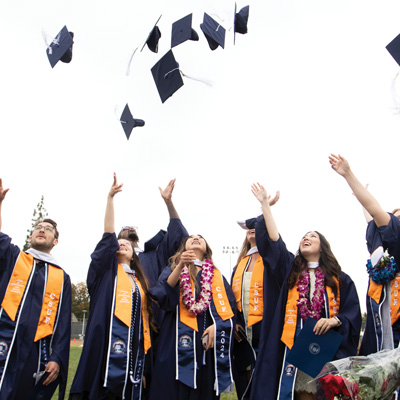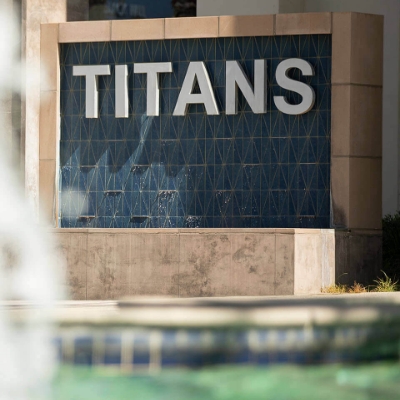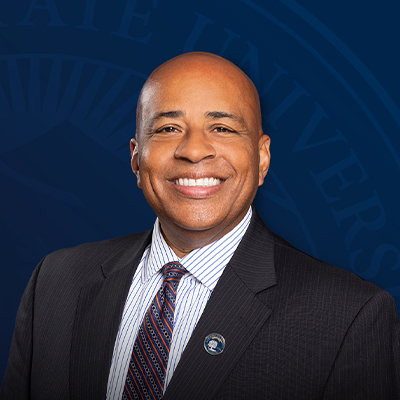A Cal State Fullerton economist, psychologist and sociologist explain why a college degree matters.
With the Pew Research Center reporting that Americans hold mixed views on the importance of a college degree, three Cal State Fullerton researchers offer insights into the benefits of higher education, including personal development, increased wages and earnings, and the advancement of society.
They find that the return on investment is much higher than people think.
College Is a Basic Need
In the past, people seeking to learn a skill would complete an apprenticeship. After becoming masters, they would bring those skills back to their communities and train others.
Today, higher education institutions fill this role by providing people with essential training, says Asya Harrison, assistant professor of psychology who researches topics in educational psychology and adolescent developmental psychology.
“Degrees from reputable institutions provide a standard measure of competence and are often required by employers,” says Harrison. “Universities offer a structured environment for learning, eliminating the need for students to independently curate their educational resources. They offer access to experts, a supportive community, and opportunities to practice and hone your skills.”
She believes higher education has become a basic need, as it provides fundamental resources for personal growth and economic stability.
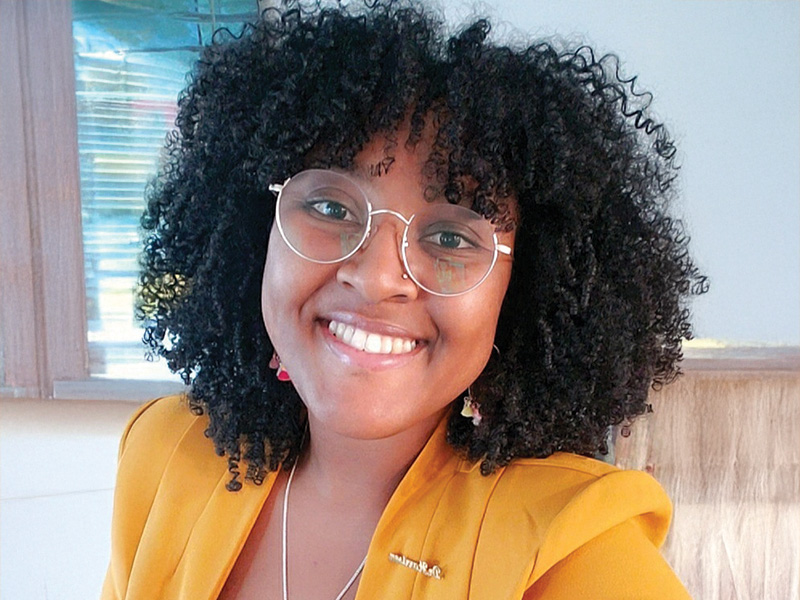
Asya Harrison
Asya Harrison is an assistant professor of psychology in CSUF’s College of Humanities and Social Sciences who teaches courses on educational psychology, psychological research, Black psychology, and race and relationships.
“The importance of higher education becomes clear when you can see that people who do not have access to college have drastically different life outcomes than people who do have access to college,” says Harrison. “When considering life outcomes in terms of health, financial stability and wellness, a degree acts as a moderating factor in helping you achieve positive outcomes.”
There are a number of intrinsic and extrinsic reasons people choose to pursue higher education, says Harrison, who earned her doctorate in education and psychology from the University of Michigan.
“There are a lot of students who are intrinsically motivated. That’s why we have our majors. Majors help students find those areas they’re interested in and allow them to pursue their passions,” she says. “For those students, time to completion is typically justified because they want to do this work and understand that building mastery takes time.”
People who are extrinsically motivated by such factors as receiving good grades, gaining access to niche careers or earning financial rewards may forget that they’re paying for more than just classes, says Harrison. There are many psychological benefits to obtaining a college degree, including evolving in an environment that facilitates the development of autonomy, competence and connectedness, which are crucial for psychological well-being.
“You don’t just learn content; you also learn maturity, social skills and net- working,” the psychologist says. “Higher education encourages critical thinking and problem-solving skills, which are vital in adapting to rapidly changing job markets.”
According to Harrison, earning a degree can also enhance feelings of self-worth and help individuals be more secure in their professional capabilities and career prospects.
“The value of higher education extends beyond academics, contributing to a well-rounded and resilient individual prepared for various life challenges.”
A High Return on Investment
An educated workforce is a more productive workforce, says Pedro Amaral, professor of economics who teaches courses in macroeconomics, macro labor, monetary and fiscal policy, and growth and development.
“Educated workers will produce more with the same resources, and generate more income for the businesses they work for and for themselves,” he says. “This, in turn, generates more tax revenues for the state and also has some associated positive externalities — more educated people commit fewer crimes and they are more politically engaged.”
According to Amaral, the cost of education is driven by three factors: the productivity growth of education services is low compared to other industries; the labor force colleges employ is highly educated and therefore very expensive; and the standard of care for students has expanded to include a wide variety of services beyond teaching.
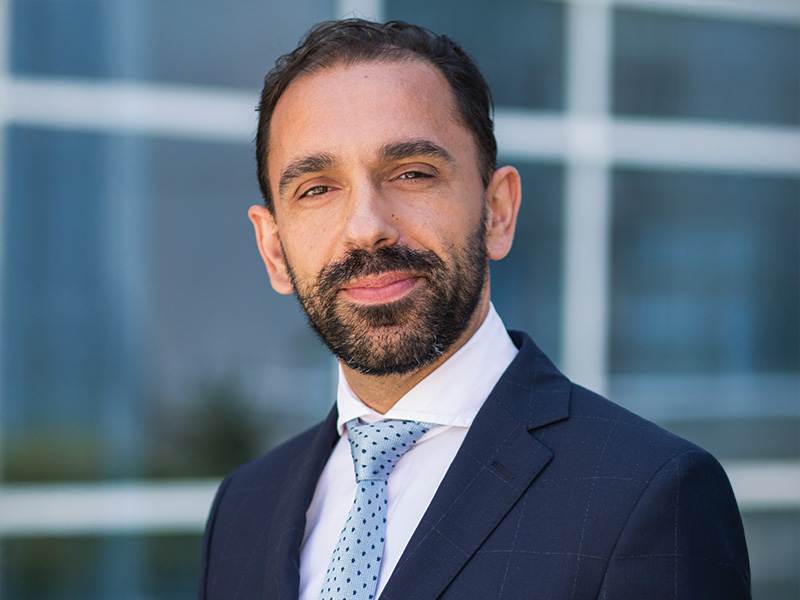
Pedro Amaral
Pedro Amaral is a professor of economics in CSUF’s College of Business and Economics who teaches courses on macroeconomics, macro labor, monetary and fiscal policy, and growth and development.
“The cost of education, especially college tuition, has far outpaced the increase in the general cost of living since at least the 1980s,” Amaral explains. “This is one of the reasons education is perceived as expensive, although this is also true of other services like health and child care.”
Amaral, who received his doctorate in economics from the University of Minnesota, researches economic fluctuations and cross-country labor market comparisons.
A bachelor’s degree is very likely to increase future earnings and so is a master’s degree, says Amaral, citing studies from Federal Reserve researchers Leila Bengali, Robert G. Valetta, William R. Emmons, Ana Hernández Kent, Lowell R. Ricketts, Jaison R. Abel and Richard Deitz.
“According to Fed researchers, college graduates earn about 75% more than those without a college degree, while those with a graduate degree earn about 100% more,” says Amaral.
“A different question is the question of ‘return,’ and this factors in cost as well as benefit. If you had $100 to invest, should you put it toward your college education tuition or in the stock market? Research shows that the average return on a college degree is roughly 14%, but it compares very favorably to the stock market, which returns on average about 7%.”
Education Advances a Society
By producing an essential workforce, higher education ensures the smooth functioning and advancement of societal infrastructure, says Maria Malagón, associate professor of sociology.
“Education as an institution, especially the university, is the foundation of so many of our other institutions, from how we build roads to how government is conceptualized and reproduced,” says Malagón.
In her Sociology of Education course, Malagón explores the role of education in socialization and labor market reproduction, as well as its role in addressing inequalities in society.
“Higher education is an equalizer in our society, driving first-generation and working-class students into the middle class and upholding ideals of a democratic society,” explains Malagón, who holds a doctorate in race and ethnic studies in education from UCLA.
College students often wonder why they need to take general education courses, which Malagón says are part of a comprehensive educational curriculum designed to prepare them for the workforce.
“You cannot triumph in any job if you don’t know how to read critically and write,” says Malagón. “That’s what a general education is supposed to give you.”
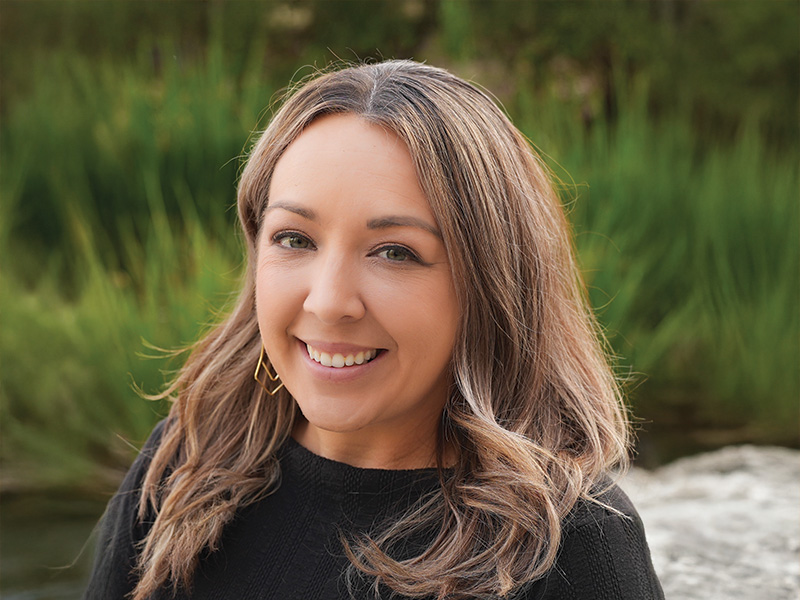
Maria Malagón
Maria Malagón is an associate professor of sociology in CSUF’s College of Humanities and Social Sciences who teaches courses on the sociology of education, race and ethnic relations, societal structure and process.
For people who question the value of studying the arts and humanities, the sociologist explains how these subjects drive innovation by reminding people of the past.
“The arts and humanities are our history and our culture,” Malagón emphasizes. “They tell us where we are and where we’re going by telling us where we’ve been.”
What she tells her own family members is that higher education is one of the few opportunities in life for people to stop, think and explore their interests.
“Some of my friends and family members went straight into the workforce and did not have the opportunities that I did. My college years were some of the best of my life. I took the time to read, study abroad and do an internship.
“I don’t know a lot of people who regret pursuing higher education, but I do know many more people who regret not doing it,” says Malagón. “Those missed opportunities and experiences can have a lifelong impact.”



